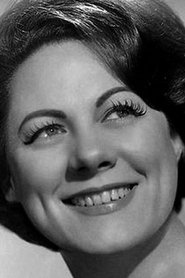Profile

Renata Tebaldi
Renata Tebaldi Cavaliere di Gran Croce OMRI (1 February 1922 – 19 December 2004) was an Italian lirico-spinto soprano popular in the post-war period, and especially prominent as one of the stars of La Scala, San Carlo and, especially, the Metropolitan Opera. Often considered among the great opera singers of the 20th century, she focused primarily on the verismo roles of the lyric and dramatic repertoires. Italian conductor Arturo Toscanini called her voice "la voce d'angelo" ("the voice of an angel"), and La Scala music director Riccardo Muti called her "one of the greatest performers with one of the most extraordinary voices in the field of opera." Born in Pesaro, Tebaldi was the daughter of cellist Teobaldo Tebaldi and Giuseppina Barbieri, a nurse. Her parents separated before her birth and Tebaldi grew up with her mother in her maternal grandparents' home in Langhirano. Stricken with polio at the age of three, Tebaldi became interested in music and sang with the church choir in Langhirano. Her mother sent her, at age 13, for piano lessons with Giuseppina Passani in Parma, who took the initiative that Tebaldi study voice with Italo Brancucci at the conservatory of Parma. She was admitted to the conservatory at 17, where she studied with Brancucci and Ettore Campogalliani. She later transferred to Liceo musicale Rossini in Pesaro, taking lessons with Carmen Melis, and on her suggestion with Giuseppe Pais. She then studied with Beverley Peck Johnson in New York City. Tebaldi made her stage debut as Elena in Boito's Mefistofele in Rovigo in 1944. Wartime conditions made for a difficult trip, with Tebaldi partly travelling by horse cart to Rovigo, and her return trip coming under machine-gun fire. Her early career was also marked by a performance in Parma in La bohème, L'amico Fritz and Andrea Chénier. She caused a stir when in 1946 she made her debut as Desdemona in Verdi's Otello alongside Francesco Merli as the title role in Trieste. Her major breakthrough came in 1946, when she auditioned for Arturo Toscanini, who says she had the "voce d'angelo" (voice of an angel). Tebaldi made her La Scala debut that year at the concert marking the reopening of the theatre after World War II. She sang the "Prayer" ("Dal tuo stellato soglio") from Rossini's biblical opera, Mosè in Egitto, and the soprano part in Verdi's Te Deum. She was given the roles of Margherita and Elena in Mefistofele and Elsa in Lohengrin in 1946. The next year she appeared in La bohème and as Eva in Die Meistersinger. Toscanini encouraged her to sing the role of Aida and invited her to rehearse it in his studio. She believed the role was reserved for a dramatic soprano; but Toscanini convinced her otherwise, and she debuted in the role at La Scala in 1950 with Mario del Monaco and Fedora Barbieri, conducted by Antonino Votto. It was the greatest success in her budding career, and led to international opportunities. During the first decade of her career, Tebaldi's repertoire included roles by Rossini, Spontini, Handel, Mozart, Wagner, Gounod, Mascagni, Tchaikovsky and contemporary composers such as Refice, Casavola and Cilea. Tebaldi provided Sophia Loren's singing in the film version of Aida (1953). ... Source: Article "Renata Tebaldi" from Wikipedia in English, licensed under CC-BY-SA 3.0. Born : 1st-Feb-1922












 Kodiapps app v7.0 - Available for
Kodiapps app v7.0 - Available for 
